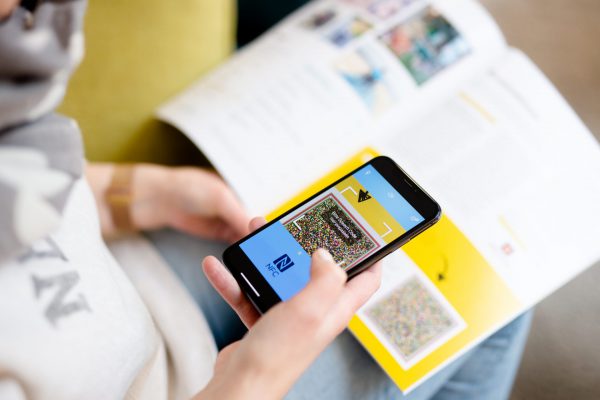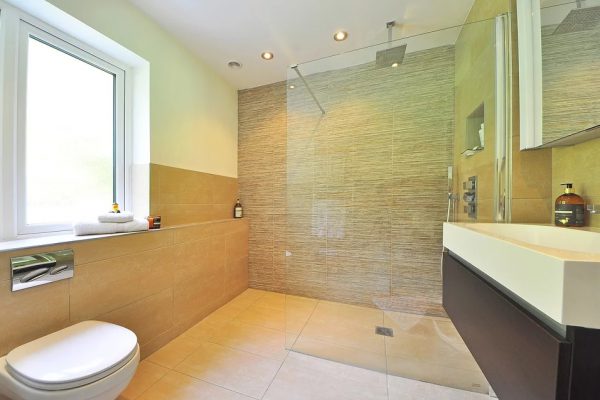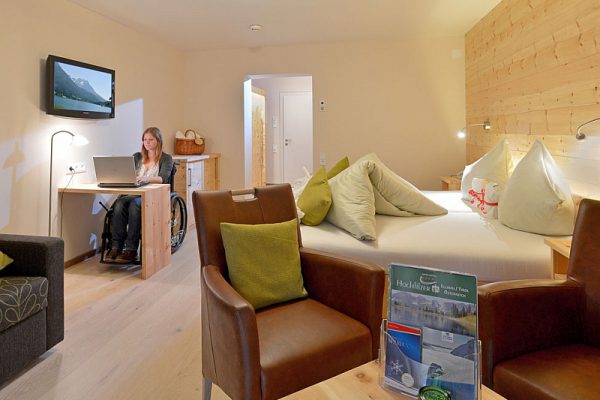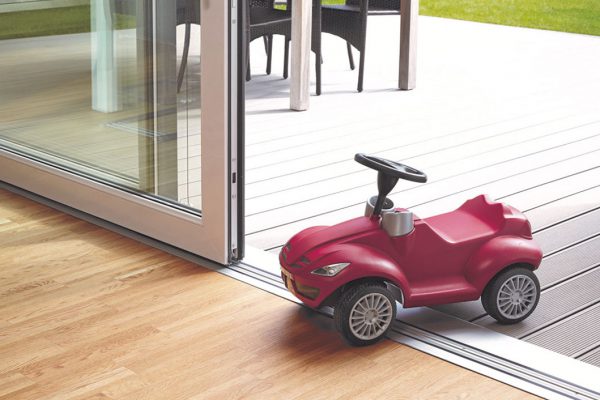When we say “barrier-free”, i.e. “without obstacles”, we think above all of people with disabilities. In other words, very few people – with very many “special” needs.
Universal Design, on the other hand, is much more general.
Accessible is everything that anyone can use, in the usual way, without any particular difficulty, and without outside help.
Nevertheless, people with disabilities must be satisfied with half-hearted solutions:
The ramp in the backyard, which is not access “in the usual way”.
Calling a hotline to have a package leaflet read to them is not “without outside help”.
These things pass for “accessible”, but are they truly barrier-free?

Reach the bell first. Then wait for someone to help. That’s accessibility?
When products and services are developed for the largest possible target group: perceptible, usable, understandable and robust.
In addition, the need for assistance of any kind should be as small as possible. In other words, exactly what accessibility also requires. But Universal Design combines barrier-free design with generally good usability. The goal is therefore the best possible “usability”. For as many people as possible.
Thus Universal Design usually provides access to information for more than one sensory channel. Like for seeing AND hearing. The usability of devices and software is so simple that even a blind or very old person can handle them. In buildings, stepless entrances, automatic sliding doors or good lighting are among the features of Universal Design.

Universal Design: A magazine in text AND speech
Because the demands for easy usability are increasing – from all customer groups!
That is why good usability is a must. Universal Design therefore sets the bar really high. Because the product or service should be easy to use by people with and without disabilities. So it must not be a “special” solution for disabled people.
Floor-level showers are a good example of how well the mainstream accepts Universal Design. Today floor-level showers stand for luxury and style that everyone would like to have in their bathroom. Because high-quality appearance and high comfort are exactly, what all customers want. The fact that they were originally developed for barrier-free bathrooms has long been forgotten.

Today: no luxury bathroom without a large floor-level shower!
Smart companies increasingly rely on experts with disabilities for any usability improvements. Because these people are forced to have the highest standards, a lot of experience and knowledge of details. So if a severely visually impaired person can decipher the menu, then even the busloads of retired people will have no trouble doing so.
But it is not always that simple: Because “using a wheelchair” does not automatically qualify for all the various issues around usability.
The opinion of the old blind neighbour might not be a qualified assessment.
The good news is: For almost any aspect of Universal Design there are experts around, who know the best solutions – including personal experience!

Our tip for stylish Universal Design: Gabana – Consulting
IT companies in particular recognized early, that “usability” is crucial for business success.
Therefore, they make sure, for example, that customers need as few “clicks” as possible for an online purchase. Or that the menu navigation of apps is simple and intuitive. That voice assistants make operation easier. So that your hands remain free. And not even a glance at the display is necessary. AND so that people with impaired vision or reading difficulties can use the same device as everyone else.
The company Alumat developed threshold-free doors for indoor and outdoor use. A floor level passage simply looks so much better! No surprise, that the company won the German Design Award!
At the same time, these threshold-free doors eliminate tripping hazards for children and the visually impaired. AND people with a wheelchair, rollator or trolley can simply roll over them, without help or effort.
In the meantime, accessibility is no longer the main reason, why more and more people are opting for this threshold-free solution.

Just looks great! And makes mother, child and grandpa happy!
Why accessible information in text AND speech can increase the reach of your message by up to 50 %.
read moreFind out, what customer centricity really means, why it is a must for success and which mistakes you should avoid.
read moreRead the latest SpeechCode blogs and news on the topics Universal Design, Customer Focus and Digitalisation.
read moreHow print media gain more reach with accessiblity
read moreZeroCon23 - THE event for the accessibility topic
read moreWhy Universal Design instead of special solutions is the right approach for inclusion
read more
Comments
blog schreibt () :
I’m no longer certain the place you are getting your info, however good topic.
I needs to spend some time finding out more or understanding more.
Thanks for wonderful information I used to be on the lookout for this information for my mission.
Barbara schreibt () :
We have a large etwork of experts in the area of Universal Design and accessibility, from architects to Consultants and NGOs.